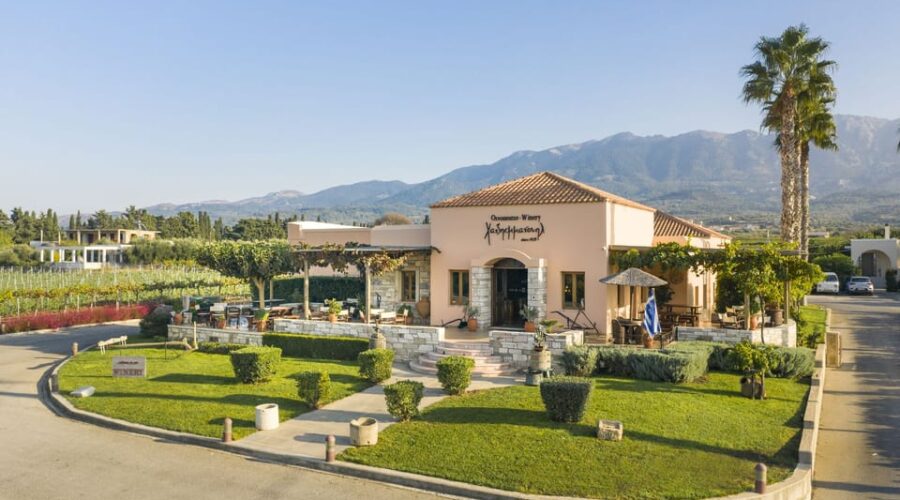Exploring the Wines of Kos: A Greek Island’s Enological Treasure
Exploring the Wines of Kos, the idyllic Dodecanese island nestled in the Aegean Sea, is not only renowned for its historic ruins and sun-soaked beaches but also for its burgeoning wine culture. With a winemaking history that dates back to antiquity, Kos is home to a variety of indigenous grape varietals, innovative wine producers, and a terroir that brings a unique character to its wines. Today, the island is establishing itself as a gem in the Greek wine industry, attracting oenophiles from around the world who come to savor the unique flavors of Kos wines.
A Brief History of Winemaking in Kos
Winemaking in Kos dates back to ancient times when Greek settlers first brought viticulture to the region. The island’s fertile soil and warm, Mediterranean climate made it an ideal place for growing grapes, and winemaking quickly became an integral part of the island’s economy and culture. Ancient texts refer to the high-quality wines produced on Kos, and archaeological evidence suggests that wine was both consumed locally and exported to other parts of the ancient world.
Though the wine industry faced challenges during the Ottoman period and phylloxera outbreaks, Kos has experienced a winemaking renaissance over the past few decades. Local wineries have modernized their production techniques while maintaining a deep respect for traditional methods, and they’re focusing on both indigenous and international varietals to capture the essence of Kos in every bottle.
Terroir and Grape Varietals
Kos has a unique terroir that combines volcanic soil, mineral-rich deposits, and the warm, dry climate of the Aegean, creating a perfect environment for growing grape varieties that thrive under intense sunlight and cool sea breezes. The volcanic soil in particular gives Kos wines a distinct minerality and depth that set them apart from wines produced in other parts of Greece.
Some of the most popular grape varieties on Kos include:
-
- Athiri – This indigenous Greek white grape thrives in the island’s climate, producing wines with a bright, refreshing acidity and notes of citrus and stone fruit. Athiri wines are typically light and crisp, making them perfect for pairing with seafood dishes common on Kos.
-
- Assyrtiko – Another beloved Greek varietal, Assyrtiko is known for its high acidity and ability to retain its freshness even in the hottest climates. On Kos, Assyrtiko produces wines with a rich, mineral backbone and flavors of green apple, lemon, and honey. These wines are often highly sought after by connoisseurs for their complexity and aging potential.
-
- Malagouzia – This aromatic white grape produces wines that are lush and fragrant, with floral and tropical fruit notes. Malagouzia is increasingly popular on Kos, often creating wines that are smooth, medium-bodied, and perfect for enjoying alongside Greek mezze platters.
-
- Mandilaria – A red grape variety with a deep, intense color and robust tannins, Mandilaria is typically used to produce full-bodied red wines with rich flavors of blackberries, spices, and dark chocolate. This grape thrives in the sun-drenched vineyards of Kos, where it develops a powerful flavor profile.
-
- Fokiano – Indigenous to the Dodecanese region, Fokiano is known for producing medium-bodied red wines with a bright acidity and flavors of red berries and earthy undertones. Kos winemakers often use Fokiano in blends, adding a touch of local authenticity and depth.
Wineries of Kos
Several wineries on Kos are embracing sustainable practices, reviving ancient varietals, and focusing on quality over quantity. Here are a few of the notable wineries that are making waves:
-
- Hatziemmanouil Winery: One of the oldest and most respected wineries on the island, Hatziemmanouil has been producing wines for over a century. The winery focuses on native grape varieties like Assyrtiko and Athiri, producing wines that reflect the island’s terroir. They are known for their commitment to sustainable agriculture and offer guided tours for visitors interested in learning more about their production methods.
-
- Triantafyllopoulos Vineyards: A newer winery on Kos, Triantafyllopoulos Vineyards has quickly gained recognition for its high-quality wines and innovative approach to winemaking. The vineyard combines traditional Greek grape varietals with international ones, creating a unique portfolio of wines that reflect both the island’s heritage and modern wine techniques. Their Assyrtiko wines are particularly popular for their mineral-rich, refreshing character.
-
- Ktima Akrani Winery: Known for its boutique wines and eco-friendly practices, Ktima Akrani Winery specializes in small-batch production with an emphasis on local varietals. They have recently introduced a sparkling Assyrtiko, which has gained popularity for its vibrant acidity and complex, layered flavors.
Wine Tourism on Kos
Kos’s wine tourism scene is flourishing, with more wineries opening their doors to visitors who are interested in tasting, touring, and experiencing the island’s winemaking culture firsthand. Wineries like Hatziemmanouil and Triantafyllopoulos offer vineyard tours, tastings, and even the chance to participate in grape harvests during the season.
Many of the wineries are located close to the island’s main town, making them easily accessible for travelers. Wine festivals and tasting events are also becoming more frequent on Kos, providing tourists with an opportunity to enjoy Kos wines in a lively, social setting.
Pairing Kos Wines with Local Cuisine
Kos offers a bounty of fresh seafood, local herbs, and seasonal vegetables that pair beautifully with its wines. Athiri and Assyrtiko, with their refreshing acidity, complement dishes like grilled octopus, shrimp saganaki, and lemon-drenched fish. For richer flavors, the structured red wines made from Mandilaria and Fokiano are ideal with lamb, roasted vegetables, and hearty moussaka.
The Future of Kos Wine
With its perfect climate, rich history, and passionate winemakers, Kos is well-positioned to continue growing its reputation in the world of wine. As more people discover the distinct qualities of Kos wines, the island’s winemaking community is gaining global recognition for its commitment to quality and innovation. Kos may still be a lesser-known wine destination compared to other Greek regions, but its wines are a delightful secret worth exploring.
In essence, the wines of Kos encapsulate the island’s vibrant history, rich terroir, and the dedication of its winemakers. Whether enjoyed on the sandy shores of Kos or savored at home, these wines bring a taste of the Aegean to every glass.



